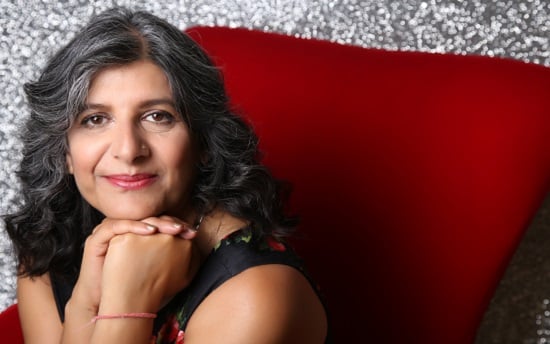
Exit interview: ‘We’re asked to follow a business model that just doesn’t work’
Arti Prashar was told to never create a job that no one else could fill. She looks back on 13 years as CEO of Spare Tyre Theatre Company.
The dream job
I think my first 8 years or so as Artistic Director for Spare Tyre were the most consistently enjoyable period in this role. At the time I was one of the first Asian Artistic Directors in the UK, running an arts organisation that wasn’t culturally specific – I didn’t make a noise about it but I knew it was significant.
It was a dream job: driving and growing the company and producing what were, in hindsight, some pretty groundbreaking shows, especially ones with learning disabled people. Working with a tight core team and professional artists from a range of backgrounds was just electric. Everyone was totally and utterly on the same page. It was ensemble working at its best – mucking in to get everything done and push creative boundaries.
When things got tough
I hit the ‘mid-life crisis’ of my career – the point where you start to question what it’s all about – as colleagues began to move on. Those sort of changes are hard for a small organisation: two people leave and that’s 50% of your staff and a lot of shared history and knowledge gone! Then you have to recruit with your fingers crossed that the new people you hire are skilled and compatible with you. Funding from trusts, foundations and Arts Council England relies on stable financial markets – 9/11, the financial crisis and the housing market scandal were always on the horizon as potential dangers to our bank account.
Open and frank relationships
Being in and around the arts sector, I began to observe, slowly but surely, that the authority of artists was being eroded. I wasn’t having that, so I negotiated becoming the Artistic Director and CEO. It was good for a while but the demands of the CEO role grew bigger and bigger. Although I was setting vision, policy and mentoring diverse emerging artists, being an artist myself was proving quite challenging.
The Artistic Director/CEO role requires incredible flexibility and you need to have mutual respect for your trustees as critical friends who share your values. You have to have the courage to speak openly and frankly with funders because Spare Tyre works at the coal face, getting out and reaching people that don’t often – if at all – engage with the arts. It’s hard work – gratifying if you get it right – but hard, and it requires a lot of human resource. When people tell me something didn’t work or didn’t resonate I get curious and set out to find better solutions. We’re lucky that Spare Tyre is a small, agile organisation that can accommodate change quickly and efficiently.
Your legacy
I was given two pieces of advice that have guided me through my career. One was from the wise Naseem Khan who said: “Always make sure that you don’t create a job that no one else can step into”. In other words, be mindful of the role model you are (as an Asian woman) and of those coming up behind you. The second piece of advice was given to me recently as I was considering stepping down from Spare Tyre. Meg Hegarty, a palliative care lecturer, told me to make sure I passed on my knowledge, particularly in dementia, before I left. So I planned my exit for several months, slowly handing over my wisdom and entrusting it to the next generation not just within Spare Tyre, but across the sector.
Our raison d’etre
I think the biggest issue facing the public arts sector might be sustainability – for our finances and our personnel. We operate in a climate where we have been asked to grow and grow, following a business model that just doesn’t work for the arts – of seeking bigger turnover and bigger and wider audiences. We need a mixed economy – always have, always will. I hear of many venues and organisations running huge deficits – how are they going to plug those holes?
The global financial crash, austerity, digitisation, charity scandals and political agendas have all brought about huge governance and policy changes over the years. We can’t have a 'one size fits all' model. You can’t compare a large charity like Oxfam or English National Opera to Spare Tyre. Our administration burden currently outstrips the creative projects that are our raison d’etre. It’s nuts that rather than making or doing we are in offices staring at screens.
Some amazing artists and projects are being produced across the world. What kind of creative exchange do we want to have on the global stage?
Join the Discussion
You must be logged in to post a comment.